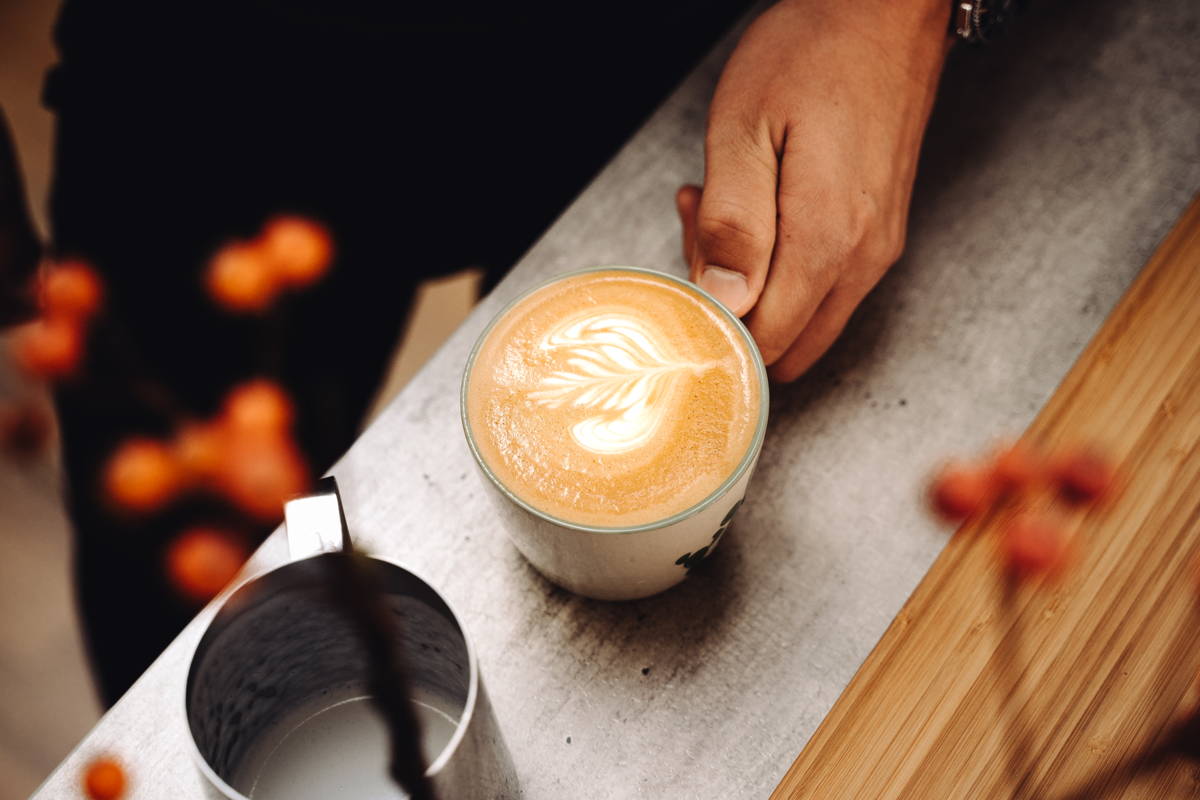

A contribution from Ria in the category #Coffee Knowledge from 15 June 2020
The Flat White is on everyone’s lips in the coffee scene. But many people confuse it with the Cappuccino. Originating in Australia, the trend has migrated to us in recent years, flooding Instagram with its works of latte art. But what are the differences between Cappuccino and Flat White?
While ingredients and cup size are the same, the difference comes down to preparation. The Cappuccino usually consists of a simple espresso and two parts milk froth – a liquid part and a solid milk froth topping which usually rises slightly over the edge of the cup. The Flat White, on the other hand, is prepared with a double Espresso Ristretto – which is a more concentrated version of espresso. By reducing the amount of water and flowtime, the espresso comes out a little stronger. We prepare the Flat White with a double espresso, but this is handled differently from barista to barista.
For both drinks, frothed milk is added. The milk foam for a Flat White, however, is more fine-pored than for a Cappuccino. The name of the drink is also derived from the milk froth: the Flat White milk froth is levelled with the rim of the cup – hence the term ‘Flat White’. The fine-pored milk froth of the Flat White is also known as microfoam and is great for getting artistic with the froth. There’s a delicate potting technique which produces fine texture on the foam surface and both the Cappuccino and the Flat White are suited for some decorative presentations. But pulling off nice latte art with the Flat White can be more difficult because of the thinner foam layer. The small but important difference lies in the consistency of the milk foam.
For a Flat White, you’ll need:
- An espresso machine with a steam nozzle for preparing milk foam
- A milk jug
- A double espresso
- 100 ml fine-pored milk foam (whole milk with 3.8 % fat is best suited for Latte Art)
- Practice and patience
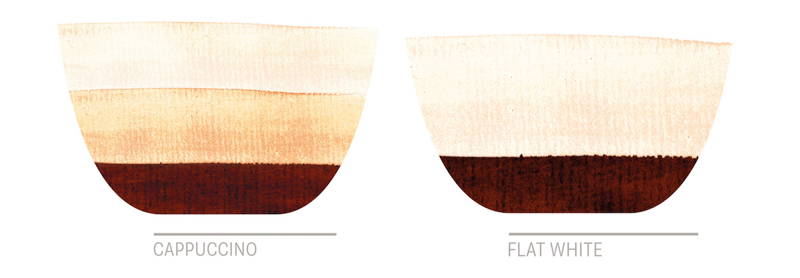
Milk froth makes all the difference
Compared to the Cappuccino, the milk is only minimally aerated in a Flat White so that the consistency of the milk froth is almost liquid and can fuse well with the espresso. But getting the right consistency is a bit of an art form. Preparation of a proper flat white isn’t child’s play and good baristas work hard to master the technique. In the following video, Hannes shows you the finer details in foaming the milk and explains some of the basics of latte art.
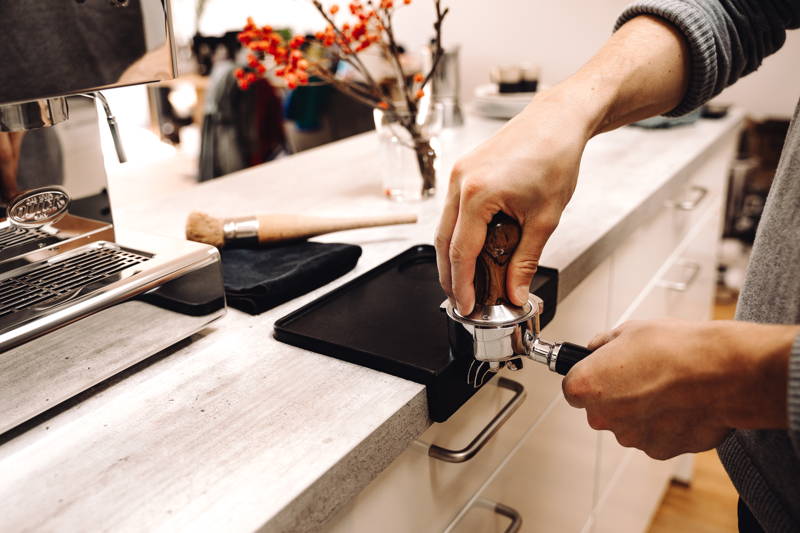
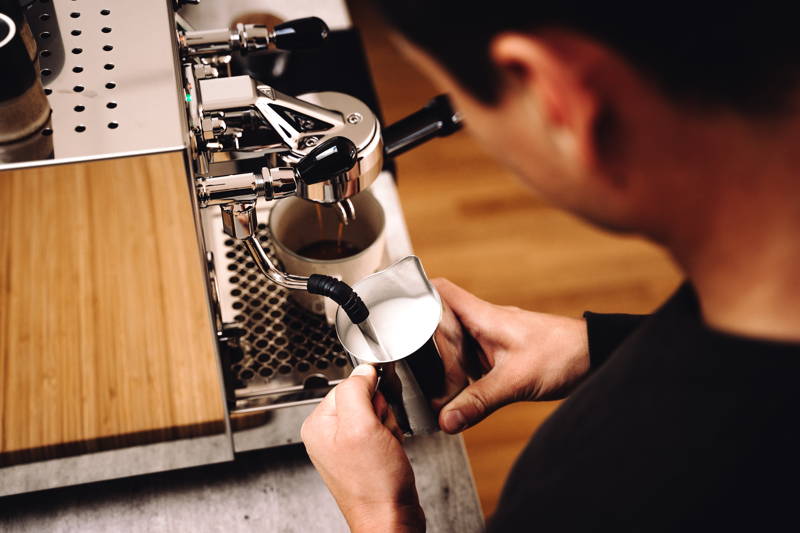
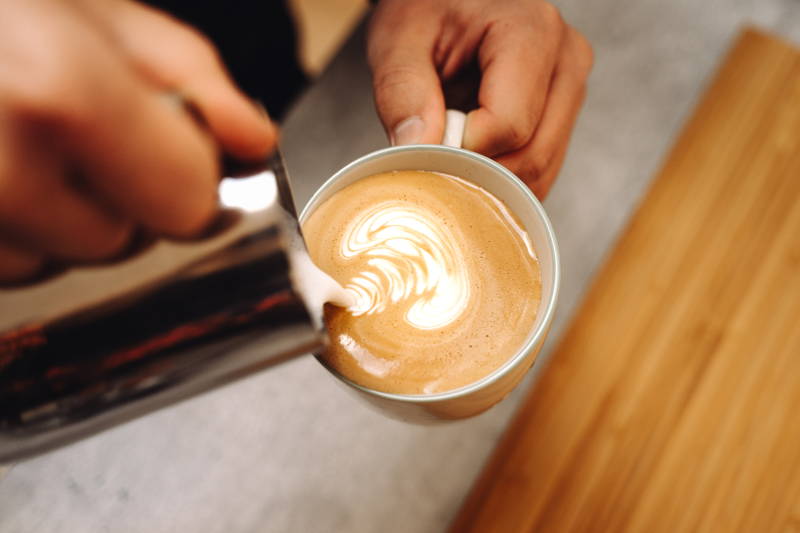
Flat White History 101
To understand the special features of the Flat White, it’s worth digging into its history. In fact, its origins date back several decades: The Flat White, as we mentioned, has its origins Down Under. After the Second World War, many British and Italians emigrated to Australia and took with them their coffee and tea culture. It could be seen in many small cafes where different coffee specialties were offered. Since the English were not familiar with the Cappuccino technique, they stuck to what they knew best and applied their tea preparations to coffee. Thus, creating the „Flat White“. At the end of the 80s, the coffee trade became a more prominent fixture of Aussie culture due to the Third Wave coffee movement and the foam surface was taken up a notch with professional pouring techniques. Latte Art was born and has been embellishing Flat Whites with heart motifs, flowers or even swans ever since.
Our recommendations for a Flat White
In the video we show you how to froth milk properly

Ria
Ria ist Teil des Brand Marketing Teams. Mit ihrer positiven Art kümmert sie sich darum, dass du alle wichtigen Infos von Coffee Circle erhältst. Ihre Lieblingskaffees? fruchtige, florale helle Röstungen aus Kenia oder Äthiopien.





